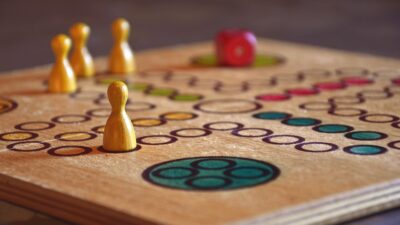In recent years, the conversation surrounding the relationship between gaming and mental health has evolved significantly. Traditionally viewed with skepticism, video games are increasingly recognized not just as a source of entertainment, but also as potential tools for mental well-being. Understanding this multifaceted relationship reveals how video games can serve as a positive force in promoting mental health.
The Benefits of Video Games
1. Stress Relief and Relaxation
Many gamers find that playing video games serves as an effective outlet for stress. Engaging in gameplay can provide an escape from daily pressures and anxieties. Immersive environments and captivating narratives allow players to momentarily detach from real-life stressors, offering a much-needed respite.
2. Social Connection
Contrary to the stereotype of solitary gamers, many video games foster community and social interaction. Multiplayer environments enable players to connect with friends or make new ones, creating a sense of belonging. For individuals who may struggle with traditional social interactions, online gaming communities can provide a platform for building friendships and support networks.
3. Cognitive Benefits
Video games often challenge players intellectually. Strategy games, puzzle games, and even action-oriented titles can enhance critical thinking, problem-solving skills, and hand-eye coordination. These cognitive benefits can boost confidence, providing a sense of accomplishment that positively impacts mental health.
4. Therapeutic Applications
The field of gaming therapy is gaining traction, where therapists use video games as a part of treatment for various mental health issues, including anxiety, depression, and PTSD. Games specifically designed for therapeutic purposes can help patients confront challenges in a controlled environment, allowing for skill-building and personal growth.
The Therapeutic Value in Design
Several game designers are now consciously creating experiences that prioritize emotional well-being. Titles like Hellblade: Senua’s Sacrifice address mental illness head-on, offering players an interactive narrative that explores trauma and recovery. Such games not only raise awareness but also foster empathy and understanding, challenging stigma around mental health issues.
Case Study: Journey
Consider Journey, a game that emphasizes exploration, collaboration, and emotional connection without the complications of traditional competition. Players navigate a vast desert and interact with others in a non-verbal manner, promoting a sense of shared experience that transcends language barriers. It’s not uncommon for players to report feelings of calm and connection after playing—the game’s design intentionally cultivates positive mental states.
Setting Boundaries
Despite the many benefits, moderation is essential. Excessive gaming can lead to detrimental effects, such as increased isolation or neglect of real-world responsibilities. Encouraging balanced gaming habits—considering time spent, the types of games played, and the impact on other life areas—is crucial in maximizing the benefits while mitigating potential downsides.
Tips for Healthy Gaming
- Set Time Limits: Mindfully allocate hours for gaming, ensuring time for other activities.
- Choose Wisely: Opt for games that positively contribute to mood and well-being.
- Engage Socially: Play with friends or join communities where positive interactions are fostered.
- Take Breaks: Incorporate regular breaks to promote mental and physical health.
Conclusion
As research continues to unveil the complex relationship between gaming and mental health, it becomes increasingly apparent that video games can be powerful allies in enhancing well-being. From fostering social connections and relieving stress to serving as therapeutic tools, the potential of gaming as a force for good is undeniable.
As we look toward the future, the challenge lies in harnessing these benefits while promoting healthy gaming habits. By nurturing this balance, we can embrace the beneficial aspects of gaming, paving the way for a healthier relationship between virtual worlds and mental health.



